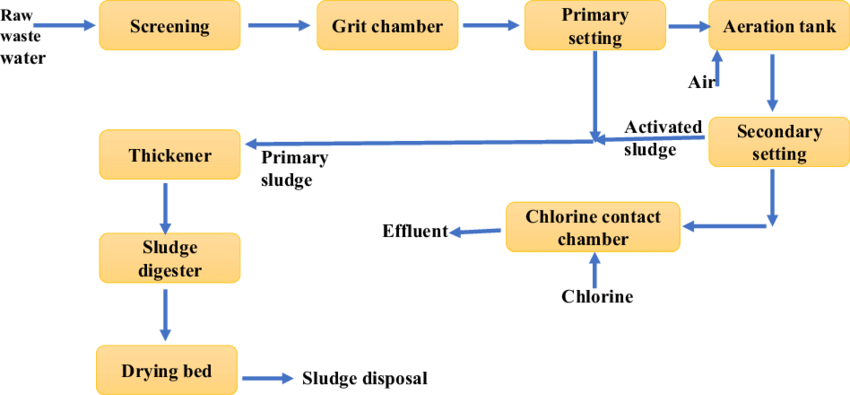The Single Strategy To Use For Reclaim Waste
The Single Strategy To Use For Reclaim Waste
Blog Article
Some Of Reclaim Waste
Table of ContentsSome Ideas on Reclaim Waste You Should KnowNot known Details About Reclaim Waste How Reclaim Waste can Save You Time, Stress, and Money.Not known Incorrect Statements About Reclaim Waste The 6-Second Trick For Reclaim Waste
Discover the kinds, events, and kinds of liquid waste. Domestic sewer waste describes the waste and products from a property septic system. This sort of waste is produced by human beings in residences, schools, and other structures. This only consists of sewage-disposal tanks that have a drainpipe field. The appropriate monitoring and disposal of residential sewer waste require fluid waste to be transferred to a sewer therapy plant where the proper approaches and devices are applied to detoxify and dispose of waste.
Business waste commonly includes prospective hazards, such as combustible products or a mix of fluid and solid waste products, and needs an advanced and comprehensive disposal procedure. The disposal of commercial waste usually involves the filtering of waste prior to transport to guarantee safe and appropriate disposal. Industrial waste is produced from byproducts and overflow of industrial procedures and production.
This type of waste can not make use of the exact same sewer management transport or processes as septic or commercial liquids. The industrial waste administration process calls for the assessment and testing of fluid waste prior to it undertakes the disposal procedure (liquid waste removal). Overflow waste is the fluid waste that originates from overflow and excess stormwater in extremely inhabited locations or cities
Drainage waste can create contamination and flooding otherwise taken care of properly. Learn much more regarding drain cleansing and waste monitoring. Ensuring proper waste administration can protect against disasters and decrease ecological injury. Both people in domestic setups and professionals in commercial or production sectors can gain from comprehending the procedures and policies of liquid waste administration.
About Reclaim Waste
Call PROS Services today to discover our waste administration and disposal services and the correct methods to care for the liquid waste you produce.
(https://boom-fruit-496.notion.site/Industrial-Wastewater-Treatment-The-Key-to-a-Cleaner-Greener-Future-13c9fdbb2e9380eca32fee3a79088ddf?pvs=4)This so-called 'wastewater' is not just an important source but, after therapy, will be launched to our land, waterways or the ocean. Used water from bathrooms, showers, baths, cooking area sinks, laundries and commercial processes is understood as wastewater.

water utilized to cool down equipment or clean plant and tools). Stormwater, a type of wastewater, is drainage that streams from farming and urban locations such as roofing systems, parks, yards, roads, paths and gutters into stormwater drains pipes, after rain. Stormwater moves unattended directly to neighborhood creeks or rivers, ultimately reaching the sea.
Some Known Factual Statements About Reclaim Waste
In Queensland, the majority of wastewater is treated at sewage therapy plants. Wastewater is transferred from domestic or industrial sites through a system of drains and pump stations, known as sewerage reticulation, to a sewage therapy plant.
The Division of Natural Resources suggests city governments about managing, operating and preserving sewage systems and treatment plants. In unsewered areas, city governments might call for homeowners to install individual or house sewer treatment systems to treat residential wastewater from commodes, kitchen areas, shower rooms and laundries. The Department of Natural Resources authorizes the use of home systems when they are proven to be effective.
In some new communities, treatment of some stormwater to get rid of trash, sand and crushed rock has started utilizing gross toxin traps. Wastewater treatment happens in four stages: Removes solid matter.
Wastewater after that flows right into large storage tanks where solids resolve and are eliminated as sludge. Oil and scum are skimmed from the surface area. Makes use of small living microorganisms knows as micro-organisms to damage down and remove continuing to be dissolved wastes and great fragments. Micro-organisms and wastes are included in the sludge. Gets rid of nitrogen and phosphorus nutrients that could cause algal blossoms in our waterways and intimidate aquatic life.
Some Known Details About Reclaim Waste
Nutrient removal is not offered at all sewage treatment plants because it requires expensive specialist equipment. Clear liquid effluent created after therapy may still contain disease-causing micro-organisms - liquid waste disposal melbourne.

The majority of wastewater streams article into the sewage system. Under the Act, local federal governments carry out approvals and permits for environmentally pertinent activities (Periods) including wastewater launches that might have a neighborhood impact.
Fascination About Reclaim Waste
Otherwise, samples are taken for laboratory evaluation. Often many examinations are needed to establish the degrees of each of the various toxins such as oils, heavy steels and pesticides in water. Surveillance supplies accurate details concerning water quality and can verify that permit problems are being fulfilled. The details gotten through tracking gives the basis for making water quality decisions.
Report this page